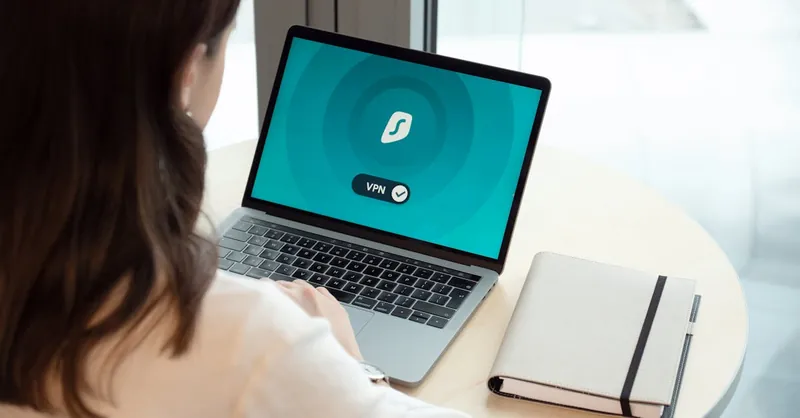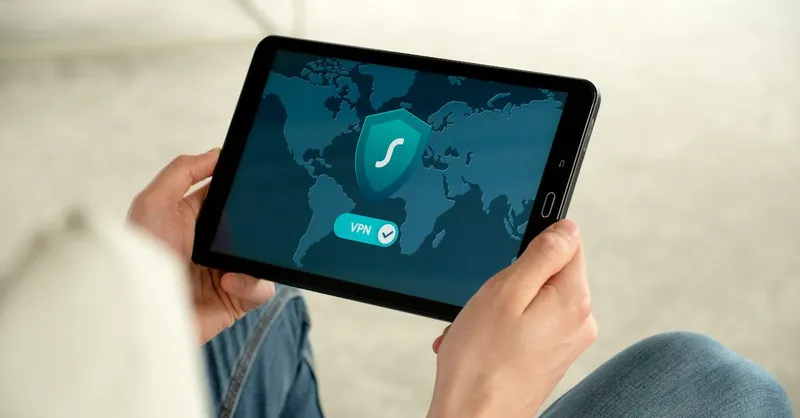Top Cybersecurity Tools Everyone Should Use Today
Category: Cybersecurity
Protect Your Digital World with Essential Cybersecurity Tools
If you’re a small business owner or simply someone striving to safeguard your online presence, you’ve likely realized the overwhelming array of cybersecurity threats lurking online. From phishing scams to ransomware attacks, the digital risks are real and growing. But not everyone has a dedicated IT team or the time to research the best security solutions. That’s where this guide comes in.
You’ve landed here because you want clear, actionable recommendations on the cybersecurity tools that provide effective protection without complexity or hefty price tags. Maybe you’ve tried a few antivirus apps or password managers, but you’re unsure which ones truly deserve your trust. This post cuts through the noise with carefully selected cybersecurity tools that suit individuals and small businesses alike.
We’ll explore software and utilities that defend against malware, secure your passwords, protect sensitive data, and offer safe browsing—all designed to help you build a strong defense against online threats. You won’t find overwhelming jargon or generic advice here; instead, you’ll get straightforward insights into tools that you can start using today to keep yourself and your business safe.
Continue reading to discover the top cybersecurity tools everyone should use and why they matter for your online security strategy.
- Protect Your Digital World with Essential Cybersecurity Tools
- Antivirus and Endpoint Security: Your First Line of Defense
- Password Managers: The Key to Strong, Unique Passwords
- Multi-Factor Authentication (MFA) Tools: Strengthening Your Security with an Extra Layer of Defense
- Virtual Private Networks (VPNs): Safeguard Your Internet Traffic and Privacy
- Firewall Solutions: Your Essential Barrier Against Unauthorized Access
- Backup and Recovery Tools: Safeguarding Your Data Against Ransomware and Accidental Loss
- Email Security and Anti-Phishing Tools: Shield Yourself from Credential Theft
- Encryption Tools: Protect Your Data at Rest and in Transit
- Security Awareness and Monitoring Software: Stay Proactive Against Cyber Threats
- Mobile Security Apps: Protect Your Smartphones and Tablets from Emerging Threats
Antivirus and Endpoint Security: Your First Line of Defense
In today’s digital landscape, reliable antivirus software and endpoint security solutions are critical for protecting your devices from malware, viruses, ransomware, and sophisticated zero-day exploits. These tools act as a defensive barrier, scanning your files, monitoring system behavior, and blocking threats before they cause damage. Without a trustworthy antivirus program, your personal information, financial data, and business assets become vulnerable to attacks that can lead to costly data breaches or device lockouts.
When selecting antivirus and endpoint protection, look for solutions offering real-time threat detection, automatic updates to counter emerging threats, and minimal impact on system performance. Leading tools in this space include:
- Bitdefender Antivirus Plus – Renowned for its top-tier malware detection rates and multi-layer ransomware protection, Bitdefender delivers comprehensive security for both personal and business use.
- Norton 360 Deluxe – Combining antivirus with VPN, firewall, and identity theft protection, Norton provides well-rounded endpoint security ideal for home users and small teams.
- Kaspersky Endpoint Security for Business – A favorite among enterprises, it offers advanced threat intelligence and zero-day exploit prevention, making it an excellent choice for robust endpoint defense.
- Sophos Intercept X – Known for deep learning AI and active exploit mitigation, Sophos is highly effective at stopping ransomware and sophisticated malware attacks on endpoints.
By investing in a reputable antivirus and endpoint protection tool, you ensure multiple layers of cybersecurity that are essential to defending against both common viruses and evolving cyber threats. These solutions not only shield your devices but also provide peace of mind, enabling you to work and browse securely without constantly worrying about hidden dangers.

Image courtesy of Antoni Shkraba Studio
Password Managers: The Key to Strong, Unique Passwords
In the realm of cybersecurity, strong, unique passwords are your frontline defense against unauthorized access. Weak or reused passwords across multiple accounts make it easier for hackers to exploit your personal and business information. Despite the critical importance of password security, creating and remembering complex passwords for dozens of online accounts is both cumbersome and error-prone.
This is where password managers come into play as indispensable cybersecurity tools. These applications generate, store, and autofill complex passwords securely, meaning you no longer need to rely on simple or recycled passwords. A good password manager encrypts your entire password vault using strong cryptography, ensuring that only you can access your sensitive credentials with a single master password.
Why Use Password Managers?
- Create Secure, Unique Passwords Instantly: Password managers eliminate the temptation of weak passwords by instantly generating long, randomized strings that are nearly impossible to crack.
- Simplify Password Management Across Devices: With cloud syncing, your passwords are accessible on your phone, tablet, or computer, ensuring convenience without compromising security.
- Prevent Phishing and Credential Theft: Many password managers auto-fill login details only on legitimate websites, reducing the risk of falling victim to phishing scams.
- Store Additional Private Data Safely: Besides passwords, they often allow you to save sensitive notes, credit card info, and software licenses in one encrypted vault.
Recommended Password Managers
Some leading password managers that combine security and ease of use include:
- 1Password – Known for user-friendly design and robust security features including Watchtower, which monitors password weaknesses.
- Dashlane – Offers dark web monitoring and VPN service alongside seamless autofill and password generation tools.
- LastPass – Provides a secure and free tier for most users with powerful password auditing and multi-factor authentication support.
- Bitwarden – An open-source, budget-friendly option trusted by many cybersecurity professionals for transparency and strong encryption.
By integrating a reliable password manager into your cybersecurity toolkit, you not only strengthen your defense against password-based attacks but also streamline your daily digital life securely. This simple yet powerful tool completes your security strategy by protecting one of the most vulnerable entry points hackers often exploit—your passwords.

Image courtesy of Pixabay
Multi-Factor Authentication (MFA) Tools: Strengthening Your Security with an Extra Layer of Defense
Multi-Factor Authentication (MFA) is an essential cybersecurity tool that adds a critical layer of protection beyond just usernames and passwords. By requiring users to verify their identity using two or more factors—such as a password plus a code or physical token—MFA dramatically reduces the risk of unauthorized account access, even if your password is compromised. This additional step is one of the most effective ways to block cybercriminals from infiltrating your accounts, safeguarding sensitive business data and personal information from phishing attacks, credential stuffing, and brute force hacking attempts.
Types of MFA Methods
- Authenticator Apps – Apps like Google Authenticator, Microsoft Authenticator, and Authy generate time-based one-time passwords (TOTPs) that refresh every 30 seconds. These are easy to use and widely supported by websites and services.
- Hardware Tokens – Physical devices such as YubiKey or RSA SecurID provide a robust form of MFA by producing unique, cryptographically secured codes or allowing tap-to-authenticate access. These hardware tokens are especially recommended for businesses or users requiring the highest level of security.
- SMS and Email Codes – While better than no MFA, receiving one-time codes via text message or email is less secure compared to apps or hardware tokens, as these channels are vulnerable to interception or SIM swapping.
- Biometric Verification – Some platforms now offer fingerprint, facial recognition, or voice recognition as additional verification methods, leveraging biometrics as a convenient and strong second factor.
Recommended MFA Applications
- Google Authenticator – A free, simple-to-use app providing robust time-based one-time passcodes, compatible with most popular websites and services.
- Authy – Offers backup and multi-device sync options, making it easier to manage MFA tokens securely across different gadgets.
- Microsoft Authenticator – Integrates well with Microsoft products and supports push notifications for quick approval of logins.
- YubiKey – A hardware token trusted by security professionals that supports multiple authentication protocols, including FIDO2 and U2F, delivering the highest protection level.
Incorporating multi-factor authentication tools into your daily security practices is a straightforward way to enhance the protection of your online accounts. Whether you’re safeguarding email, cloud storage, financial services, or business portals, MFA blocks attackers from gaining access even if passwords are leaked or stolen. Enabling MFA is often free, easy to deploy, and one of the most effective cybersecurity defenses anyone can implement today.

Image courtesy of Pixabay
Virtual Private Networks (VPNs): Safeguard Your Internet Traffic and Privacy
In a world where online privacy is constantly under threat, Virtual Private Networks (VPNs) have become indispensable tools for protecting your internet traffic on both public and private networks. A VPN creates a secure, encrypted tunnel between your device and the internet, effectively shielding your data from prying eyes such as hackers, ISPs, or government surveillance. This encryption prevents data interception while you browse, stream, or communicate, making VPNs essential for anyone concerned about maintaining their privacy online.
Whether you're using a public Wi-Fi hotspot at a café or connecting from your home network, a VPN masks your IP address and location, protecting your identity and making it much harder for cybercriminals to track your online activity. Beyond privacy, VPNs also help circumvent geo-restrictions, allowing safer and more open access to websites and services. When choosing a VPN, look for features such as:
- Strong encryption standards (AES-256)
- No-log policies that guarantee no data tracking or retention
- High-speed servers in multiple locations worldwide
- Kill switch functionality to block internet traffic if the VPN connection drops
- Compatibility with your devices and operating systems
Top VPN providers like ExpressVPN, NordVPN, CyberGhost, and Surfshark combine ease of use with robust security measures, making them ideal for individuals and small businesses alike.
By integrating a trustworthy VPN into your cybersecurity arsenal, you gain another powerful layer of protection, safeguarding sensitive information from interception and preserving your privacy across all your online activities. This privacy shield is especially critical in an era of increasing cyber espionage, data breaches, and invasive tracking technologies.

Image courtesy of Dan Nelson
Firewall Solutions: Your Essential Barrier Against Unauthorized Access
A firewall acts as a critical gatekeeper in your cybersecurity setup, monitoring and controlling the flow of incoming and outgoing network traffic based on predetermined security rules. Whether in hardware or software form, firewalls serve as a frontline defense against unauthorized access attempts, malicious attacks, and network-based threats that can compromise your devices and sensitive data.
Hardware Firewalls
- Physical devices installed between your internal network and the internet.
- Commonly used in small businesses and home networks to protect multiple devices at once.
- Provide robust protection by filtering traffic externally, blocking suspicious connections before they reach your computers.
- Often include additional features such as intrusion detection systems (IDS) and virtual private network (VPN) support for encrypted connections.
Software Firewalls
- Installed directly on individual devices like computers, laptops, or smartphones.
- Monitor app-level network activity to block suspicious programs or behaviors.
- Offer greater flexibility by allowing you to configure rules tailored to your device’s specific needs.
- Many antivirus suites include integrated software firewalls, enhancing endpoint protection.
Why Firewalls Are Indispensable
- Prevent Intrusion: Firewalls block unauthorized users and cybercriminals attempting to access your network remotely.
- Filter Malicious Traffic: They inspect network packets to detect and prevent malware, spyware, and ransomware infections.
- Control Application Access: Firewalls manage which apps and services can connect to the internet, limiting vulnerabilities from untrusted software.
- Enhance Privacy and Performance: By cutting off unwanted traffic, firewalls reduce exposure to attacks and optimize your network performance.
Popular firewall solutions include pfSense and Cisco ASA for hardware options, while Windows Defender Firewall and ZoneAlarm provide effective software-based protection. For comprehensive defense, combining both hardware and software firewalls creates a layered security perimeter that significantly lowers your risk of cyber intrusions.
Incorporating a well-configured firewall into your cybersecurity toolkit is essential to establishing a secure boundary between your digital assets and external threats. This proactive barrier not only protects your devices but also strengthens your overall online security posture against increasingly sophisticated cyberattacks.

Image courtesy of Pixabay
Backup and Recovery Tools: Safeguarding Your Data Against Ransomware and Accidental Loss
In the battle against ransomware attacks and unexpected data loss, backup and recovery tools play a crucial role in your cybersecurity toolkit. Regularly backing up your files ensures that even if your system is compromised, encrypted, or corrupted, you can quickly restore your data without succumbing to ransom demands or suffering permanent loss. Effective backup solutions are your safety net, providing peace of mind by preserving copies of critical documents, photos, databases, and system settings.
Why Regular Backups Are Essential
- Mitigate Ransomware Impact: With ransomware incidents on the rise, having secure, up-to-date backups allows you to restore encrypted or locked files without paying hackers.
- Protect Against Human Error: Accidental deletions, file corruption, or software malfunctions can cause significant data loss, which backups help prevent.
- Ensure Business Continuity: For small businesses especially, rapid recovery from data disasters enables uninterrupted operations and minimizes downtime.
- Comply with Data Regulations: Many industries require data protection strategies mandating regular backups to adhere to compliance standards.
Features to Look for in Backup and Recovery Tools
- Automated Backup Scheduling: Avoid manual mistakes and ensure consistency with automatic backups at defined intervals.
- Versioning and Incremental Backups: Store multiple versions of files and only back up changes to preserve storage space.
- Offsite and Cloud Storage Options: Keep backups separate from your main devices to prevent loss due to physical damage or cyberattacks targeting local data.
- Easy Recovery Process: Quick and simple restoration methods reduce downtime and frustration during emergencies.
- Encryption and Security: Protect your backup data with strong encryption so that it remains safe even if accessed by unauthorized parties.
Popular backup solutions include Acronis True Image, Backblaze, and Carbonite for cloud-based backups, as well as native tools like Windows Backup and Restore and macOS Time Machine for local or hybrid backups. By embedding comprehensive backup and recovery tools into your cybersecurity strategy, you minimize data loss risks and build resilience against ransomware attacks, accidental deletions, and system failures—ultimately securing your digital life and business assets.

Image courtesy of Mikhail Nilov
Email Security and Anti-Phishing Tools: Shield Yourself from Credential Theft
Email remains one of the primary attack vectors for cybercriminals aiming to steal credentials, spread malware, or launch phishing scams. Email security and anti-phishing tools are essential cybersecurity defenses that help identify and block malicious content before it reaches your inbox. These tools use advanced algorithms, machine learning, and real-time threat intelligence to detect suspicious links, fake sender addresses, and harmful attachments that could otherwise trick you into revealing passwords or downloading malware.
To protect yourself from increasingly sophisticated phishing attempts, consider using software and browser extensions that offer features such as:
- Phishing URL Detection – Automatically flagging or blocking links that lead to fraudulent websites designed to harvest your login credentials.
- Malicious Attachment Scanning – Scanning email attachments to detect embedded malware or ransomware payloads.
- Spoofing Protection – Identifying and warning about emails spoofed to appear as trusted senders.
- Real-Time Threat Intelligence – Leveraging continuously updated blacklists and heuristic analysis to stay ahead of emerging phishing campaigns.
- User Education and Alerts – Providing warnings and tips when suspicious emails are detected, helping users avoid falling victim to scams.
Recommended Email Security Solutions
- Microsoft Defender for Office 365 – Offers robust phishing detection, anti-spam filtering, and safe links protection tailored for Outlook and Microsoft 365 users.
- Mimecast Email Security – A comprehensive cloud-based platform that combines advanced threat protection with email continuity and data loss prevention.
- Proofpoint Essentials – Designed for small and medium businesses, delivering targeted attack protection and real-time threat analysis.
- PhishTank SiteChecker (Browser Extension) – Helps users identify and block phishing websites linked from emails on the fly.
Integrating strong email security and anti-phishing tools into your cybersecurity strategy drastically reduces the risk of credential theft and financial fraud. Since phishing attacks continue to be one of the most common methods hackers use to breach accounts, utilizing these solutions protects your online identity, sensitive business information, and ultimately, your peace of mind. Make email safety a priority to stop cyber threats before they even reach your inbox.

Image courtesy of Markus Winkler
Encryption Tools: Protect Your Data at Rest and in Transit
In the digital age, encryption tools are indispensable for safeguarding sensitive information from unauthorized access. Whether you’re storing crucial files on your device or exchanging confidential data online, encryption ensures that your information remains unreadable to hackers and cybercriminals. Encryption applies to two critical states of data: data-at-rest (stored data) and data-in-transit (data being transmitted across networks). Utilizing effective encryption tools builds a resilient defense by making intercepted data useless without the proper decryption keys.
Data-at-Rest Encryption
Protecting stored data is vital, especially on laptops, external drives, or cloud storage where physical access or server breaches could expose your files. Tools like BitLocker (Windows) and FileVault (macOS) offer full-disk encryption, automatically encrypting files and folders on your drives. For individual files or folders, utilities such as VeraCrypt provide robust, open-source encryption containers where you can securely lock away sensitive documents, financial records, or proprietary business information.
Data-in-Transit Encryption
When sending emails, transferring files, or browsing the web, your data is vulnerable to interception over unsecured networks—especially public Wi-Fi. Encryption protocols like TLS (Transport Layer Security) secure web traffic, which you encounter daily through HTTPS websites. To extend encryption to messaging and email, tools like Signal use end-to-end encryption, ensuring only intended recipients can read your messages. For email specifically, PGP (Pretty Good Privacy) encryption tools like Gpg4win allow you to encrypt email contents so they remain confidential even if intercepted.
Why Encryption Tools Matter
- Prevent Data Breaches: Encryption renders stolen data useless, dramatically reducing the risk and impact of breaches.
- Maintain Privacy and Compliance: Many privacy regulations (e.g., GDPR, HIPAA) require encryption of certain types of sensitive data.
- Protect Communication Channels: Encrypting data in transit prevents eavesdropping and man-in-the-middle attacks on your communications.
- Secure Cloud Storage: Encrypting files before upload shields your data even if cloud servers are compromised.
By incorporating trusted encryption tools for both stored and transmitted data, you create airtight protection around your most valuable digital assets. Whether securing business documents, personal files, or everyday communications, encryption is a foundational cybersecurity practice that everyone should implement to keep their information private and secure.

Image courtesy of Antoni Shkraba Studio
Security Awareness and Monitoring Software: Stay Proactive Against Cyber Threats
One of the most effective ways to strengthen your cybersecurity posture is by combining security awareness training with real-time monitoring software. These tools not only help detect suspicious or malicious activities early but also educate users on recognizing and responding properly to cyber threats. After all, even the best technical defenses can be undermined without informed, vigilant users.
Why Security Awareness and Monitoring Matter
-
Early Threat Detection
Security monitoring tools continuously analyze system logs, network traffic, and user behaviors to identify anomalies that could signal cyberattacks—such as unusual login attempts, ransomware activity, or data exfiltration. Early alerts allow you to react promptly before minor issues evolve into a full-blown breach. -
Empowering Users Through Education
Cybersecurity training platforms teach employees and individuals to recognize phishing scams, social engineering attempts, and other common attack vectors. Cultivating an informed user base turns your weakest links into a human firewall, drastically lowering the risk posed by human error. -
Compliance and Reporting
Monitoring software often includes audit trails and reporting features required by regulatory frameworks like GDPR or HIPAA. This makes it easier to demonstrate adherence to security standards and improve incident response plans.
Recommended Security Awareness and Monitoring Tools
- KnowBe4 – The industry leader in security awareness training, offering engaging phishing simulations and comprehensive user education modules.
- SolarWinds Security Event Manager – A powerful real-time log analysis and security information event management (SIEM) tool designed for small to mid-sized organizations.
- CrowdStrike Falcon Insight – Provides endpoint detection and response (EDR) capabilities that monitor behaviors to detect sophisticated threats and breaches.
- Tenable.io – Delivers vulnerability management combined with continuous network monitoring to highlight security weak points proactively.
By integrating security awareness programs with active monitoring solutions, you create a proactive defense framework where threats are quickly detected and users are prepared to avoid common pitfalls. This combination is crucial for individuals and small businesses seeking to enhance their cybersecurity resilience and stay one step ahead of cybercriminals.

Image courtesy of Antoni Shkraba Studio
Mobile Security Apps: Protect Your Smartphones and Tablets from Emerging Threats
As mobile devices become central to both personal and professional lives, their security is more important than ever. Mobile security apps are essential tools designed to shield smartphones and tablets from growing threats like spyware, malicious apps, phishing attempts, and network attacks. Cybercriminals increasingly target mobile platforms due to the sensitive data they hold—emails, contacts, financial information, and confidential business apps—making comprehensive mobile protection a top priority.
Why Use Mobile Security Apps?
- Detect and Remove Malware and Spyware: Mobile security apps scan apps and files for harmful code and surveillance tools that can compromise your privacy and data integrity.
- App and Web Protection: These tools monitor app permissions and block access to fraudulent websites, helping to prevent phishing and scams delivered via SMS, apps, or browsers.
- Anti-Theft Features: Many mobile security solutions include remote lock, wipe, and location tracking functionalities to protect your data if your device is lost or stolen.
- Safe Browsing Over Public Wi-Fi: Integrated VPN services or secure browsers safeguard your connections when using untrusted networks, preventing data interception.
- Real-Time Alerts and Updates: Continuous monitoring and instant alerts keep you informed about suspicious activity, ensuring prompt response to emerging risks.
Recommended Mobile Security Apps
- Lookout Mobile Security – Combines malware detection, theft protection, and safe Wi-Fi functionality tailored primarily for Android and iOS devices.
- Avast Mobile Security – Offers a robust free tier with antivirus scanning, app lock, call blocking, and anti-theft features.
- Norton Mobile Security – Provides phishing protection, Wi-Fi security, and app advisor technology that warns you about risky apps before installation.
- Malwarebytes for Mobile – Delivers lightweight but effective malware and adware detection, preserving device performance without compromise.
Implementing strong mobile security tools is critical as mobile threats evolve rapidly and traditional desktop-centric protections are insufficient on their own. Whether you use your device for personal tasks, business communications, or sensitive transactions, these apps help secure the most vulnerable and frequently targeted technology in your digital ecosystem. Enhancing your mobile defenses with trusted security apps strengthens your overall cybersecurity posture and protects your data wherever you go.

Image courtesy of Dan Nelson
